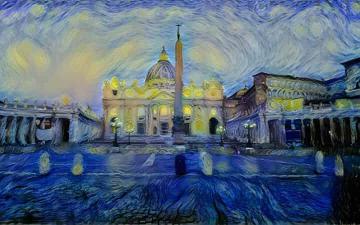
Journal of Moral Theology, Vol. 11, Special Issue no. 1, Spring 2022, “Artificial Intelligence”
Matthew Gaudet, Lecturer of Engineering Ethics at Santa Clara University's School of Engineering and Ethics Center Faculty Scholar, and Brian Green, director of technology ethics at the Ethics Center, co-edited this special issue of the Journal of Moral Theology focusing on artificial intelligence. The issue discusses the moral and theological implications of artificial intelligence, exploring topics such as marginalization, autonomous weapons, bias in AI, and robot personhood.
The issue connects theology, philosophy, and technology in order to create a better understanding of the moral implications of artificial intelligence, explaining both the current landscape and the possibilities we should be looking for in the future. As Green explains, “these ethical issues around AI have become really important in the last few years, and almost no one in Catholic moral theology is working on them."
The issue is a long time in the making, with Green and Gaudet beginning the work over three years ago. When asked about the evolution of AI ethics issues over those three years, Green said “the way that AI has changed over the course of the last three years has only reinforced that it was the right time to get this out there.”
One of the visual aspects added to the issue was the use of AI-created art to go with each of the articles in the issue. This addition prompts questions about the validity of machine-created art, which some might say is less valuable than human-made art. Green had a different perspective, saying, “I feel we can still think of it as being art that’s made by people because people made the AI algorithm in the first place, it’s just going about making the art in a very roundabout way.” Gaudet raised separate questions, saying “I think the art example raises some of the important moral questions regarding AI. Is the programmer the artist or are Brian and I? If AI is just a tool then DeepDreamsGenerator is the equivalent of a paintbrush - someone else built the tool, but Brian and I set the settings to create the specific visuals that adorn the volume. So are we the artist or is the programmer who created the tool?”
When it comes to why Green and Gaudet were the right people for this issue, Gaudet spoke of the obligation he feels: “I believe that a big part of my vocation as an ethics scholar is to bring complex ethical discussions out of the ivory tower and to make them digestible and consumable for what I call the ethical layperson – those without a PhD in philosophy or theology; those who cannot and do not spend their day pondering the deep moral questions.” Green seems to think of the answer as even more simple. “SCU is a Jesuit Catholic university in the middle of Silicon Valley, where all this AI stuff is being put together, so if we aren’t going to do this, who is?”
The conversation paper, which highlights a variety of authors in a symposium-style setting, is perhaps the most important of the articles in the issue for Green, as it provides an overview of AI ethics problems while also showcasing a variety of different viewpoints. The issue is designed to give a deeper understanding of the ethical issues concerning AI, and the conversation paper is a synthesis of everything the issue is trying to achieve. For SCU students and anyone interested in ethics, AI, or religion, the conversation paper is the place to start. Green stressed the importance of the issue to students, saying, “I think the thing that students should pay attention to is that AI is something that they need to think about a lot as they’re going out into the world.” AI is an important factor in our society today, and it will only continue to grow in influence and scope, leading to more complications when it comes to ethics.
Another highlight of the experience was the opportunity to engage in dialogue about the Vatican's position on artificial intelligence summarized in Green's interview with Bishop Paul Tighe, Secretary of the Pontifical Council for Culture at the Vatican.
This issue, along with others like it, is essential for the Ethics Center’s continued growth and helps build awareness and expand the Center’s audience, allowing individuals and organizations to utilize the resources provided by the Center to make ethical decisions. As Green says, “if we hadn’t done this it would have been a missed opportunity.”
Lucas Bush ’23, political science and ethnic studies major and a marketing and communications intern with the Markkula Center for Applied Ethics, contributed to this story.
